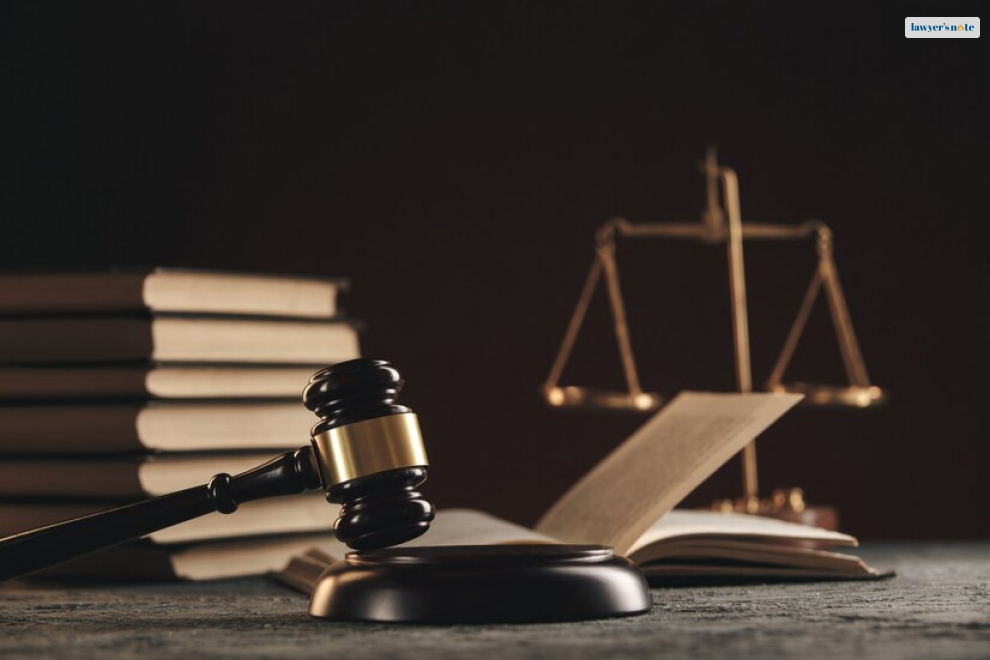What are the Common Types of Breaches in a Contract?
Contracts are legally binding agreements that define the rights, responsibilities, and obligations of the events concerned. However, occasionally those contracts....
851 Views

Are you just starting your business? Well, just so you know, be it a small or large-scale business, success often comes with dedication, hard work, and risk-taking.
However, sometimes while running your business you might come across several challenges that might disrupt your overall business. It can be both criminal or civil in nature.
However, as a new entrepreneur, you should be specifically familiar with tort law. Now you might ask what is a tort.
Tort law primarily deals with the legal wrongs caused to you or your business. Tort cases help out in seeking proper compensation for any kind of harm suffered.
In this blog, we’re going to specifically talk about business torts. We will discuss what can cause it, its types, and even its remedies.

Popularly going by the term trade law or mercantile law, commercial law deals with commercial disputes. It also safeguards your rights and relations in a commercial encounter like merchandising, sales, and trade.
Commercial law is an umbrella law under which both public and private law persists. However, all these primarily come under civil law.
Commercial law encompasses titles like principal and agent alongside accident and insurance. Even though you might wonder at a glance that these are mainly the terms that deal with financial law, they aren’t. Financial law is a term that falls under the umbrella term of commercial law.

In layman’s terms, you can say that commercial litigation deals with any sort of commercial dispute. However, you must remember that it’s very extensive and complex. You need specific specialists to fight these cases for you.
Commercial litigation mostly handles lawsuits that are civil in nature. If the crime was criminal in nature, then it would have directly fallen under the term of criminal malpractice.

Business torts-also known as economic torts deals with civil wrongdoings taking place in a business.
Business torts often result in financial loss for your business. Your business might end up losing its reputation alongside your competitive advantage. Business torts can also end up losing all your shares.
You might be wondering why someone commits a business tort. Business torts are often committed intentionally or even as a result of negligent behavior.
Business tort consists of two basic purposes- compensating a business for its losses or deterring from making such violations in the near or far future.

Business torts are an umbrella term and come with several violations and claims. However, the common outcome of business torts is primarily economic loss. Let’s see the claims under business torts:
This can happen before even forming a contract. This is caused by deliberate and unlawful interference of a third party in a company’s contractual dealings. It can also violate and severely hamper your business relationships.
Such contractual interference results in a breach of contract where the third party obstructs you from performing your obligations specified under the contract. This overall hampers your business performance and you might even lose your reputation to your stakeholders.
This is a form of economic injury where a third party meddles in the way you’re conducting your business. This can mean that they’re limiting your business to conduct sales. It might also mean that they’re also hampering the overall transport as well in the case of interstate commerce.
Moreover, different businesses and individuals must not also partake in entering into agreements that might even result in another business seizing the opportunity to work normally.
This is an intentionally false statement that can damage your reputation in a business. It means a third party or one of your stakeholders is making false statements about your business. This can considerably harm your business transactions as a whole.
Hence, in order to prove that a form of injurious falsehood has occurred, it’s imperative that the intent to malice or malice must be proved. If proven, the counterparty has to come up with ways to fulfill the damages or provide monetary compensation.
This refers to a competition between two businesses on different unequal terms. Hence, these are causing favorable disadvantages. This is applied to some competitors and not everyone.
Moreover, unfair competition also exists in situations where third-party actions by competitors severely harm your business to perform properly on equal terms.
This business tort is a form of deliberate deception where a third party tries to secure an unlawful gain. The mens rea of this tort is to make severe wrongs that can hamper your overall business reputation.
Fraudulent misinterpretation ultimately deceives someone through different gestures and innuendos. Sometimes even silence can be a big instrument in fraudulent misinterpretation.

It’s normal to think about preventive measures so that your business doesn’t undergo a business tort. Don’t worry, we have you covered! Here are some constructive ways through which you can easily conduct your business and safeguard it from business torts. They are:
Remember that your business dealings and transactions should be transparent. Always follow the ethical code of conduct for businesses. This will safeguard you and your business in the long run.
Try to document everything you discuss. Use written contracts to have proper agreements with your customers suppliers and other businesses. Ensure that the agreements have proper outlines with comprehensive terms and conditions. Don’t forget to include clauses about addressing breaches or disputes.
Intellectual property is an integral part of your business. It helps you to protect sensitive data. Protect your copyrights and other trade secrets by employing proper legal means. This will even prevent any form of unfair competition. This will also safeguard you from any form of unfair competition and theft of any valuable business assets.
Be it a small business or a large enterprise, it’s pivotal that you protect yourself and your business. Getting insurance coverage comes with a safety net for your complicated business practices. Here are some examples of which you can get your insurance coverage for:
Suppose your business consists of any physical product that should have proper safety protocols in place. The safety protocols entail avoiding any kind of accidents or keeping from any employees getting hurt.
Learning and development of your employee plays an important role to upscale ethical business practices. Educate your employees about different torts. Tell them how to prevent them. Also ensure that your enterprise blooms in a culture of compliance and integrity.
This is a special kind of business tort in which a fiduciary or a responsible person acts according to the best interest of someone else. It might sometimes disadvantages the fiduciary, but they still have to act accordingly to uphold their duties.
Breach of fiduciary duty refers to when a person acts out of their own interest and not at the interest of the person they’re supposed to be the fiduciary of.
You might be wondering what causes someone to breach their fiduciary duties. Here are some reasons you’d like to know. They are:
There you have it! Now you know everything you had to know about business torts. We hope this blog was informative and helpful.
However, do let us know if we missed out on anything.
Read Also:

Contracts are legally binding agreements that define the rights, responsibilities, and obligations of the events concerned. However, occasionally those contracts....

A breach of contract happens when one or greater parties fail to fulfill the terms mentioned in a legally binding....
By LawyersNote
28 May 2024
The ideology of damage plays a crucial role in the law of contracts. Damages are an integral method of law....
By LawyersNote
25 May 2024